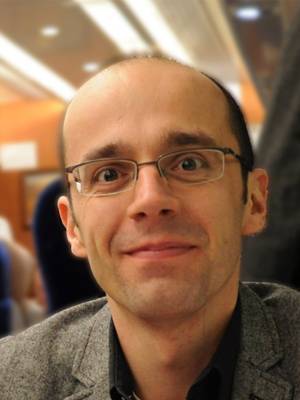
Tim Schwanen
- Works at
- University of Oxford
A short interview with …
Scientific challenges for KiM
The greatest challenge is to minimise the contribution that transport makes toward human-induced climate change. To accomplish this I believe we need a radical change in how we think about, and create policies for, transportation, whereby the potential role of technological change and economic instruments are viewed in a different light. Moreover, the social and cultural processes in which transport is integrated must be well-considered.This also requires a new way of thinking about the regulation of transportmarkets.
Research to be proud of
Around ten years ago I started a long-term project aimed at a greater integration of the social sciences in transport-related research - especially insights gleaned from cultural geography, science and technology studies, and certain schools of philosophy. This has resulted in a series of publications and new insights into, for example, the positive and negative effects that the dominance of insights derived from civil engineering, economics and psychology have in our thinking about reducing CO2 emissions in transport, and also about how certain discourses pertaining to aging and wellbeing both facilitate and limit the mobility of elderly people.
Affinity with KiM core research themes
My research is most closely related to the research themes 'Sustainable mobility, safety and transition' and 'Mobility of groups'. It also intersects with the research theme, 'Social importance, the role of government and market organisation'.
Current position and core scientific research
I am currently a Departmental Lecturer in the University of Oxford's Transport Studies Unit and School of Geography and the Environment. My research is rather diverse in nature,but one of its core objectives is to better understand how CO2 reduction and adaptation to climate change in transport are social, cultural and political processes. Processes in which certain habits, types of knowledge and interests play important roles and lead to specific outcomes. As part of this research, I recently launched a research study of socio-technical innovations in urban transportation, from car- and bicycle-related elements to smartphone apps that facilitate walking, cycling and public transport use, to provisions for electric cars and, possibly in future, hydrogen cars. The objective is to identify which social, cultural and institutional processes and contexts occurring in cities have the potential to enhance the success of such innovations.
Scientific background
I studied Social Geography at Utrecht University, receiving my doctorate (cum laude) in 2002 from this university based on research into the relationship between urban planning and trip- and activities-behaviour.I was a postdoc and Assistant Professor at Utrecht University, before subsequently accepting a position at the University of Oxford in 2009.